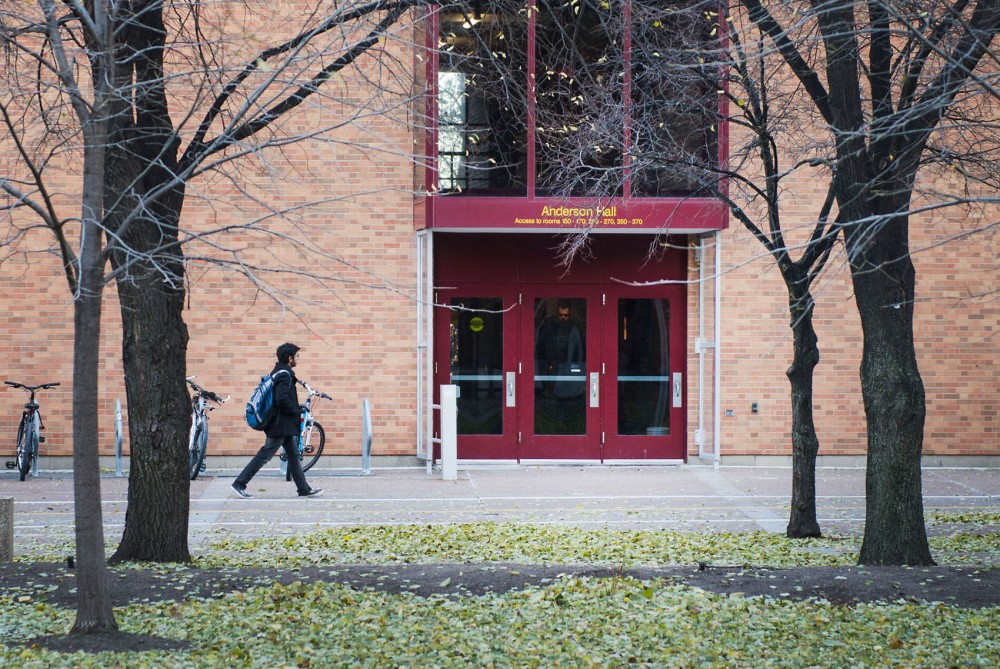In a recent survey, University of Minnesota’s Student Conflict Resolution Center has found that graduate student-adviser relationships fare mostly positive.
The survey, conducted in summer 2016 by SCRC, found that most students felt respected and supported by their adviser. Still, some students reported a lack of guidance from advisers and that they didn’t know where to go for help if they had adviser issues.
While 91 percent of students agreed or strongly agreed they were treated with respect by their adviser, 12 percent of respondents said they had significant difficulties with their adviser.
More than 32 percent of students weren’t satisfied with the amount of guidance they’d received from their adviser and almost 77 percent said they’d recommend their adviser to other students.
“The idea was to provide tools for the community that they could use,” said Jan Morse, SCRC director.
She said she hopes programs use the results to find areas to improve the advising experience.
Morse said in most departments, advising training can be sporadic.
“The idea was to provide tools for the community that they could use,” she said.
Lauren Mitchell, president-elect of the Council of Graduate Students, said she thinks average relationships between students and advisers could be strengthened.
Early on in a student’s career, the relationship can be in a “honeymoon phase” where everything seems good, but like in any long-term relationship, there’s going to be bumps along the way, she said.
“As graduate students go in their career they grow more assertive, they become experts in their target area,” Mitchell said.
Morse said many of the results differed from first or second year students to later-stage students. Students further along in their studies reported discontent at higher rates than first or second year students, she said.
The SCRC conducted the survey on advising as an expansion on the surveys it has already conducted on academic harassment since 2007.
Since then, the center has documented rising rates of harassment among graduate students.
Morse said the resolution center plans to administer another academic harassment survey later this year to follow up on past results.
Since advisers play a key role in addressing issues like bullying, Morse said, the center decided to add a survey examining student-adviser relationships.
“If you had a good adviser, you’re going to make it most likely, no matter what is going on in your experience there,” Morse said.
Good advising comes from someone who is willing to understand each student’s unique situation and can be empathetic to it, said Teddie Potter, clinical associate professor in the school of nursing.
Potter won the “Outstanding Advising and Mentoring” award in 2016, which is granted by COGS, Professional Student Government and the SCRC.
“Some people feel that by being a good adviser it means that you somehow soften the expectations or lighten the load, and that’s not it at all,” she said. “It’s really helping people have high as [possible] potential for themselves, and [finding] what they need for that.”
Potter said the culture of graduate school plays a role in adviser-student problems.
“There still exists in our society a narrative of education that, ‘I was pushed hard, I was treated poorly … therefore to make you strong, that’s how I’ll treat you,’” she said.
Mitchell said advisers need to be supportive enough to be understanding when non-academic events affect students but also need to push students to perform well.
“Your adviser is really both your boss and your coach in many ways,” she said. “I think we see problems when one of those types of things break down.”








